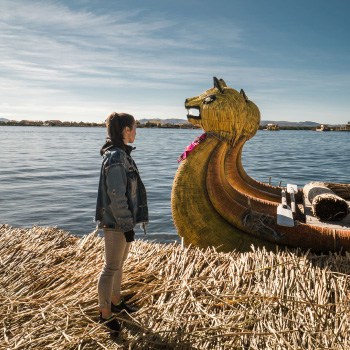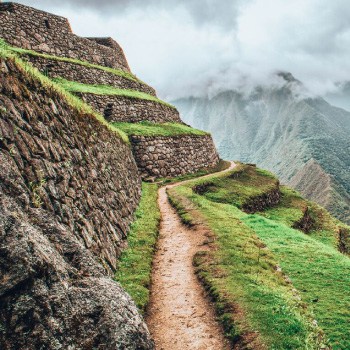What vaccinations do I need to travel to Peru?
December 20, 2012Making sure that you have all the correct vaccinations before you travel to Peru is essential for maintaining your well-being and health whilst abroad. Paul Jones, a Peru travel information expert takes a closer look at the question: What vaccinations do I need to travel to Peru?
Just before I get in to the nitty gritty of writing this article, I must point out that this information is intended as a reference only. For all the latest and most up-to-date information, you must a consult a qualified professional like a doctor or a travel clinic. So, let’s carry on with the question: What vaccinations do I need to travel to Peru?
Remember that vaccinations and preventative medication needed for Peru package vacations will vary depending on which part of the country you intent to travel. For example, if you are sticking mainly to the coast and highlands then you need less protection and vaccinations than if you are travelling to the Amazon Jungle regions.
General Advice for vaccinations in Peru
Consulting a professional medic
The first point of call for anyone thinking about travelling to Peru is to visit a professional travel clinic or a qualified doctor. Most medics will have access to a central database that provides information on the latest health risks of most countries. Your medical professionals will quickly be able to identify the necessary vaccinations and preventative medication you will require. Remember that your doctor will be obliged to offer you everything recommended for your trip, but don’t forget to use your own judgement to decide if you really need all the vaccinations offered.
Allowing enough time to get vaccinated
It is vitally important that you don’t leave your vaccinations until the last minute. Plan ahead as some vaccinations require a few injections, which need to be administered over a period of several months. For example, Hepatitis B vaccine is administered with 3 injections over a period of 4 – 6 months.
What vaccinations do you need to enter Peru
Peruvian law doesn’t request that you have any vaccinations to enter the country, and you are not required to show any vaccination records. However, before you travel it is worth checking with your local Peruvian Embassy to find out if this law has changed. If you have a vaccination card or certificated, take them with you, as this may help you in a medical emergency.
ENTERTAINMENT TIP: If looking for fun at night, or to watch sports during the day, or even a taste of home, visit the Wild Rover Hostels Chain for great food, sports and beer! Entrance to their bars is free even for non-guests
Travelling to other countries in South America
If you intend to travel to multiple countries in South America (or any other country), you need to check that the countrie(s) you intend to visit do not impose entry restrictions if you have previously travelled to Peru. Double check with the necessary embassies to be completely sure.

What vaccinations do I need to travel to Peru
Routine Vaccinations:
Make sure you are up-to-date with measles/mumps/rubella, diphtheria/pertussis/tetanus and poliovirus.
Hepatitis A
Recommended for all travellers to Peru. Recommended for countries that have poor sanitation. To prevent hepatitis A always wash your hands after using the toilet, and before eating and preparing food. Can be given as a combined vaccination with hepatitis B, and needs to be administered 4 – 6 weeks before you travel.
Hepatitis B
Recommended for all travellers to Peru. For full protection the vaccine is administered with 3 injections over a period of 4 to 6 months. Your doctor may decide that you don’t require the vaccination if you are not in a high risk group. High risk groups include people that frequently change their sexual partners, or regular drug users.
Yellow Fever
Recommended for travellers visiting tropical regions of Peru, including most of the eastern side of the Andes and destinations such as Manú National Park, Tambopata National Park and Iquitos area. Yellow fever is usually spread by a day time mosquito known as the Aedes aegypti mosquito. The vaccination must be administered 10 days before you travel to give your body time to develop protection against the yellow fever infection. It is also important to prevent getting bitten by the mosquito, and it is recommended to use light coloured long clothing and a strong deet based insect repellent.
Typhoid
Recommended for all travellers to Peru. The bacterial infection is usually associated with areas that have low levels of sanitation, and limited access to clean water. Vaccines are available for Typhoid, but are generally considered as only offering low levels of protection against the bacteria. Always wash your hands after using the toilet and before eating. Drinking bottled or boiled water and avoiding uncooked vegetables and un-peeled fruits is also recommended.
Rabies
Recommended for all travellers to Peru. Rabies is a serious viral infection that is usually caught from the bite of an infected animal. The infection is caught as saliva passes from the animal to your blood through a bite or a scratch. Although many animals can carry rabies, travellers to Peru are most at risk from dog bites. The rabies vaccination consists of 3 vaccinations over a period of 1 month. Avoid petting or feeding street dogs.
Malaria
Recommended for travellers visiting tropical regions of Peru, including most of the eastern side of the Andes and destinations such as Manú National Park, Tambopata National Park and Iquitos area. Malaria is a serious tropical disease spread by mosquitos, and although no recent cases of the disease have been reported in tourist areas of Peru, it is advised to take antimalarial drugs. Speak to your doctor about which drugs may be appropriate for you, and be aware that some medication needs to be taken several days before you arrive in the country. Bite prevention is important whist travelling in high-risk areas, and using long light coloured clothing is advised. Always sleep under a good quality mosquito net and use insect repellent (day and night) with a high deet content.
Dengue Fever
There is currently no vaccine or medication for dengue fever, so preventative measures are the only way to stay safe. Dengue is one of the most common viral infects found in most tropical regions throughout the world, including Peru. In high-risk areas, always use long light coloured clothing, and use insect repellent with a high deet content day and night.
Helpful websites
USA Centers for Disease Control and Prevention – http://www.cdc.gov/
United Kingdon NHS Choices – http://www.nhs.uk
This article ‘What vaccinations do I need to travel to Peru’ was brought to you by the Peru travel information experts at The Only Peru Guide, the best free online Guide to Peru.
YOU MAY LIKE

Lima to Machu Picchu – Agencies DON’T want you to read this!

#1 Rated Day Trips From Lima To Unforgettable Destinations

Everything You Need to Know to Avoid the Typical Tourist Mistakes At Machu Picchu

What NOT To Do When Visiting Rainbow Mountain

Spend 50% less and see 100% more in Peru

Machu Picchu Tickets – All You Need To Know!

These Hidden Destinations Just Outside Of Lima Will Blow Your Mind!

Peru – How to Avoid Being a Typical Tourist

OFFICIAL: This Company Was Voted The Best Way To Get Around Peru

Peruvian Travel Secrets That Only The Locals Know


